The Czech republic has a very rich parliamentary and state history. The following overview presents the most important events that characterise the modern development of Czech parliamentarism.
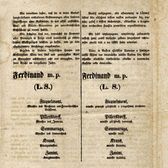
Publication of the first imposed constitution (the Pillersdorf Constitution) by the Austrian government. The Constitution foresaw a bicameral system of Parliament (the Imperial Diet), composed of a House of Deputies and Senate.
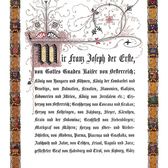
Publication of the third imposed constitution (the February Patent, the Schmerling Constitution) which included several annexed patents (no. 20-22/1861 Coll.). These documents provided for the establishment of a bicameral Imperial Parliament, composed of a House of Deputies and a House of Lords. Representatives to the House of Deputies were to be appointed from the provincial Diets, whereas representatives to the House of Lords were appointed by the Emperor.
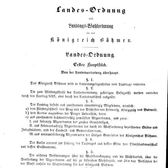
Elections to the provincial Diets were held. These elections were based on the basis of a system of electoral curias. Certain church dignitaries and university rectors were honorary members of these curias. After elections, the provincial Diets appointed their representatives to the House of Deputies (with the exception of representatives from the Hungarian, Italian and Croatian imperial provinces). Representatives from the Czech and Moravian provincial Diet refused to participate in meetings of the Imperial Council as of 1863.
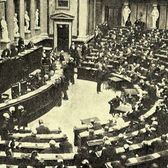
Publication of a new electoral law for elections to the House of Deputies of the Imperial Parliament. The entire territory of the Empire was divided into electoral ridings, each representing one mandate. From the total number of members in the House of Deputies (516), 130 mandates were elected in Bohemia, 49 in Moravia and 15 in Silesia.
Additionally, the curial electoral system was abolished, and this effectively meant the establishment of a universal, equal and secret right to vote for all men of 24 years of age or older. The right to be elected to office was granted to all men of 30 years of age or older.
Women and members of the armed forces did not yet have the right to vote. The curial electoral system for elections to the provincial Diets remained in force.
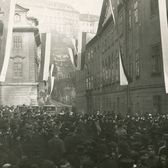
Establishment of the independent Czechoslovak Republic. Legislative and executive power was wielded by a National Council composed of 30 members who proportionally represented political parties that had been elected to the House of Deputies in Bohemia, Moravia and Silesia in the Imperial elections of 1911.
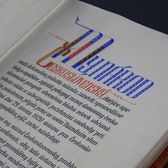
The National Assembly approved Act no. 121/1920 Coll. which established the Constitution of the Czechoslovak Republic.
This Constitution reflected the traditional division of powers and legislative power was to be wielded by a bicameral Parliament (The National Assembly) composed of a Chamber of Deputies and Senate.
The Chamber of Deputies was to have 300 members elected for 6 year terms on the basis of a system of proportional representation, whereas the Senate was to have 150 members elected for eight year terms on the basis of the same electoral system.
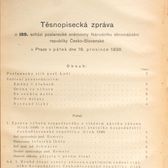
The National Assembly approved the last act in its history. After this day, the National Assembly was never called to meet.
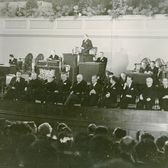
A unicameral Provisional National Assembly was established.
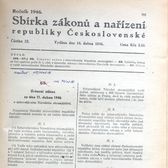
Act no. 65/1946 Coll. regarding the Constitutional Assembly was approved. This Act established a unicameral Parliament with 300 members. Act no. 67/1946 Coll. on elections to the Constitutional Assembly was also approved.
Elections were held two weeks later, voter participation was mandatory.
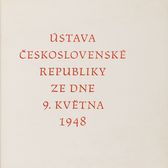
The Constitutional Assembly approved a new Constitution of the Czechoslovak Republic (Act no. 150/1948 Coll.) at a time of high tensions following the take-over of power by the Communist party.
The new Constitution, also called the Constitution of the 9th of May, established a unicameral parliament (The National Assembly). Voter participation in elections was again stipulated as being mandatory. A voter could cast a blank vote to express disagreement with the unified National Front list of candidates.
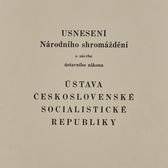
A new socialist Constitution (which remained valid until the end of 1992) was approved. Article 2 provided that state power was to be wielded by elected bodies, namely the National Assembly, the Slovak National Council and (local) National Councils.
Nonetheless, state power was primarily exercised by organs of the Communist Party.
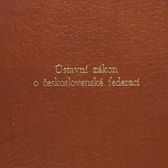
Constitutional Act no. 143/1968 Coll. on the Czechoslovak Federation was approved as an amendment to the Constitution. This Act established a federal system of government in the Czechoslovak Republic, which was to be newly composed of two equal territorial units – the Czech Socialist Republic and the Slovak Socialist Republic.
At the federal level, legislative power was to be exercised by a bicameral Federal Assembly composed of a People’s Assembly and an Assembly of Nations.
The People’s Assembly was composed of 200 Deputies (this number was reduced in 1990 to 150). The Assembly of Nations was composed of 150 Deputies, of which 75 were elected in the Czech Socialist Republic and 75 were elected in the Slovak Socialist Republic.
At the level of the two republics, legislative power was exercised by the Czech National Council and by the Slovak National Council.

Constitutional Act no. 135/1989 Coll. was approved by the Federal Assembly, which abolished the leading role of the Communist Party.
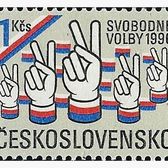
Elections to both chambers of the Federal Assembly and to both National Councils were held on the basis of a universal, equal and direct right to vote.
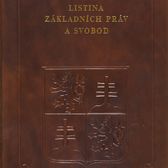
The Federal Assembly approved Constitutional Act no. 23/1991 Coll., establishing the Charter of Fundamental Rights of Freedoms.
This Charter was to later form part of the constitutional system of the independent Czech Republic.
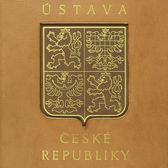
The Czech National Council approved the Constitution of the Czech Republic (Constitutional Act no. 1/1993 Coll.).

The independent Czech Republic was established on the basis of the Constitution of the Czech Republic, which entered into force on January 1, 1993.
The Constitution reflects a parliamentary system of government, where legislative power is wielded by a bicameral Parliament composed of a Chamber of Deputies and Senate.
The current Chamber of Deputies was established on January 1, 1993 and was initially composed of the Deputies who had been elected to the Czech National Council.
The Senate, however, was established only after the first elections to the Senate were held in 1996.